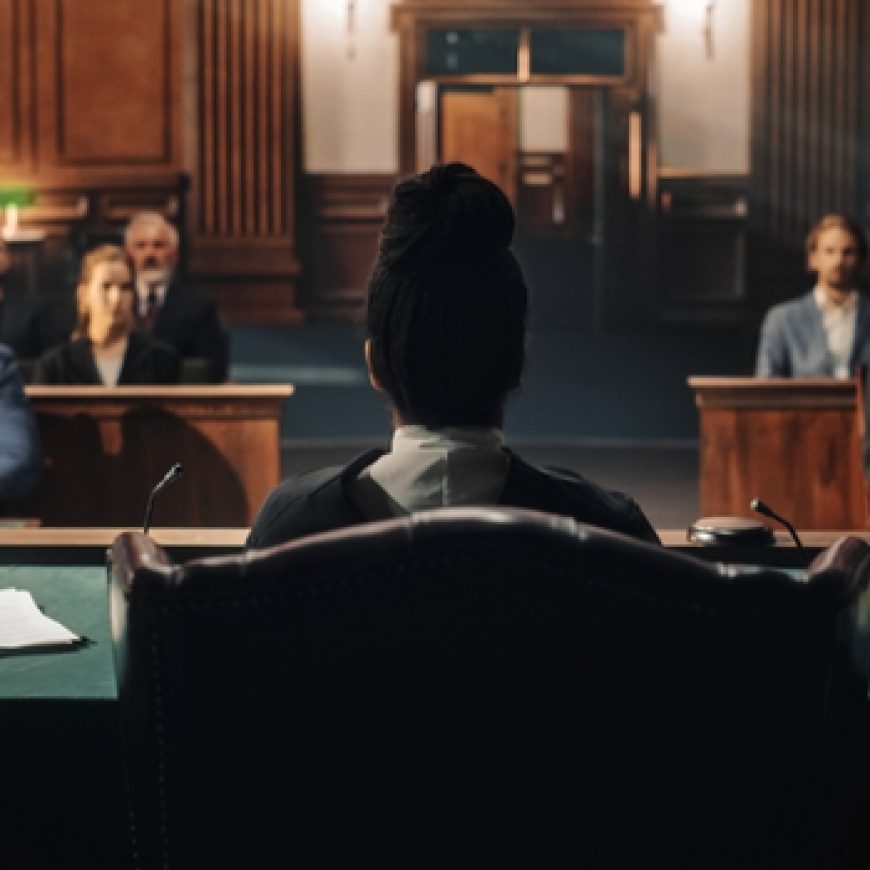Whether you are a plaintiff, defendant, or just a witness who received a subpoena to testify in the mail, a deposition is serious business.
You may be wondering, can I refuse to give a deposition in Texas? The answer is yes, but under the risk of contempt of court.
The Texas Rules of Civil Procedure, the Texas Rules of Evidence, and any applicable Local Rules of Court govern depositions. They set the ground rules for procedures such as noticing a deposition, consequences for failing to attend a deposition, length of a deposition, and who may attend the deposition. Any time you are called to give a deposition, you can, and you should, have a lawyer by your side.
What Is a Deposition Hearing?
A deposition is a question-and-answer session conducted outside of a courtroom but still under oath. The reason for a deposition is so that an attorney or attorneys can gather information and facts from witnesses they believe will help their client’s position in a case, or, hurt their adversary’s position.
Deposition questions can lead to the revelation of relevant documents or other evidence, called discovery, which may be admitted in a summary judgment motion or at trial. There are very few limits on what types of questions may be asked at a deposition. However, your attorney will often enter objections into the record, such as the “relevance” of a certain line of questioning to preserve the objections for fuller argument later.
This process can either promote a settlement, so the case never goes to trial, or narrow down the issues that should be brought out in court. About 90% of all cases are resolved. The time and expense of depositions, which can involve whole workdays for lawyers (not to mention time away from work and other responsibilities for deponents), are often a significant factor in settlement considerations. Thus, depositions can be a turning point in litigation even before they occur.
Who Is Present at a Deposition?
A deposition usually takes place at the office of the attorney, deponent, or court reporter. Both defending and prosecuting attorneys, as well as witnesses, and a court reporter are present.
What Types of Cases Require a Deposition?
Generally, cases where the observations or knowledge of individuals are important to the facts of the case, are good candidates for depositions. For example, a personal injury case involving multiple cars colliding in a busy downtown intersection at midday could warrant the depositions of the drivers, passengers, and witnesses walking the streets to determine who was at fault for the accident.
On the other hand, cases where the evidence speaks for itself, such as complex contractual breach cases, can likely be litigated without reliance on depositions.
Another consideration is whether the deposition of an expert is important to the case. Frequently in cases where reports are filed, such as a safety report on a job site where a worker was injured or killed, experts are called into depositions to testify to the findings. Cases involving professional malpractice for doctors, lawyers, engineers, or other licensed professionals, also require expert depositions to compare the standard of care accepted in the particular field to how the professional acted or failed to act.
What to Expect at a Deposition
What Happens Before a Deposition Hearing
All testifying persons in a deposition, otherwise known as deponents, swear on oath to answer questions honestly. What to expect at a deposition as a witness includes this swearing and several other standard operating procedures. At a deposition hearing, the court reporter will give the oath and explain that the entire deposition will be recorded in some fashion and later made available to all parties. Before questions begin, a deponent is informed of the rules of the deposition – such as to give complete spoken answers, only to answer the questions they know and not guess, and not to talk over the attorney taking the deposition. They will be asked to confirm that they are not under the influence of drugs and alcohol and confirm how they prepared for the deposition.
What Is Involved in a Deposition Hearing
The attorneys then begin to question the deponents in direct examination. Next, other attorneys present will have an opportunity to give a cross-examination of the witness. Finally, several rounds of re-direct and re-cross may be engaged in by the attorneys. Either party may object to a question throughout the deposition, though very few objections will actually stop the question from going forward. A deponent’s job is to answer questions truthfully, simply, and to the fullest extent of their knowledge throughout the entire deposition.
What Happens After a Deposition Hearing
After the deposition is finished, the court reporter will process a transcription and provide copies and any evidence entered into the record during the deposition for both parties. Each side has access to the same information, and each side will often interpret the information differently to strengthen their claims or defenses. In this way, depositions are crucial in working up a case in preparation for either settlement or trial.
How Long Are Depositions?
The time limits for depositions in Texas are set by Texas Rule of Civil Procedure 199.5 (c), which states that “no side may examine or cross-examine an individual witness for more than six hours,” and that “breaks during depositions do not count against this limitation.” Practically, this rule results in most depositions falling somewhere within the 9 a.m. to 4 p.m. range, which is seven hours with a break for lunch. Depositions may be scheduled for multiple days or extend into additional days if needed.
Deposition Preparation Tips
The following are deposition tips we have compiled after years of successfully conducting depositions and attending depositions for our clients. Here is how to get through a deposition and come out on the other side:
- Prepare. If you do not have representation and are not a party to the lawsuit, retain an attorney as soon as you receive notice of a pending deposition to protect yourself. Prior to the deposition, meet with your attorney to review documents, discuss your testimony, and receive other pointers, such as appropriate dress and demeanor.
- Answer Truthfully. Remember that a deposition is not a casual conversation; it is a sworn question-and-answer session that can and will be used against you (and others) in a court of law. Providing false testimony could lead to perjury charges. There is never anything wrong with “I don’t recall” or “I don’t remember,” as long as it’s the truth.
- Be Mindful of the Transcript. Remember that the court reporter is documenting everything you say during the deposition, as well as occasional non-verbal and deliberate movements such as pointing something out (usually only under the direction of an attorney). But the court reporter cannot make heads or tails of head nods or shakes, uh-huh’s, and other noises commonly used in day-to-day conversations. Therefore, you must speak slowly and clearly and always use your words.
- Answer Only the Question Presented. A deposition is not a good time to overshare. The examiner is not your friend (though a good one may make you feel as though they are). Answer all questions as truthfully and directly as possible without volunteering more information than you were asked for. If you do not understand the question, do not answer, and kindly ask the examiner to rephrase.
- Stay Calm. While being questioned under oath can be stressful, the day can be quite long, and the session can become heated from time to time – you must try to keep calm and carry on. Avoid defensive or apologetic tones. Just because something unfortunate happened does not mean you are in the wrong.
- Ask To See Exhibits. Always ask to see the document before answering questions regarding it. It is your right to read and study the document to ensure that it is accurate. A lawyer discovery meeting has most likely occurred before the deposition, with many of these documents prepared. If you are not familiar with the document, tell the examiner who handed it to you. The examiner can proceed with questions, but the transcript will contain the facts that you brought to light about the document. Once you have reviewed the exhibit, wait for the examiner’s question and only answer that question.
Contact the Law Offices of Kretzer & Volderbing P.C. Today
When preparing for a deposition, you want lawyers with specific experience on depositions and other litigation techniques in Texas and who have the proper expertise and resources to help you. Contact us online today to discuss how we can help you.




